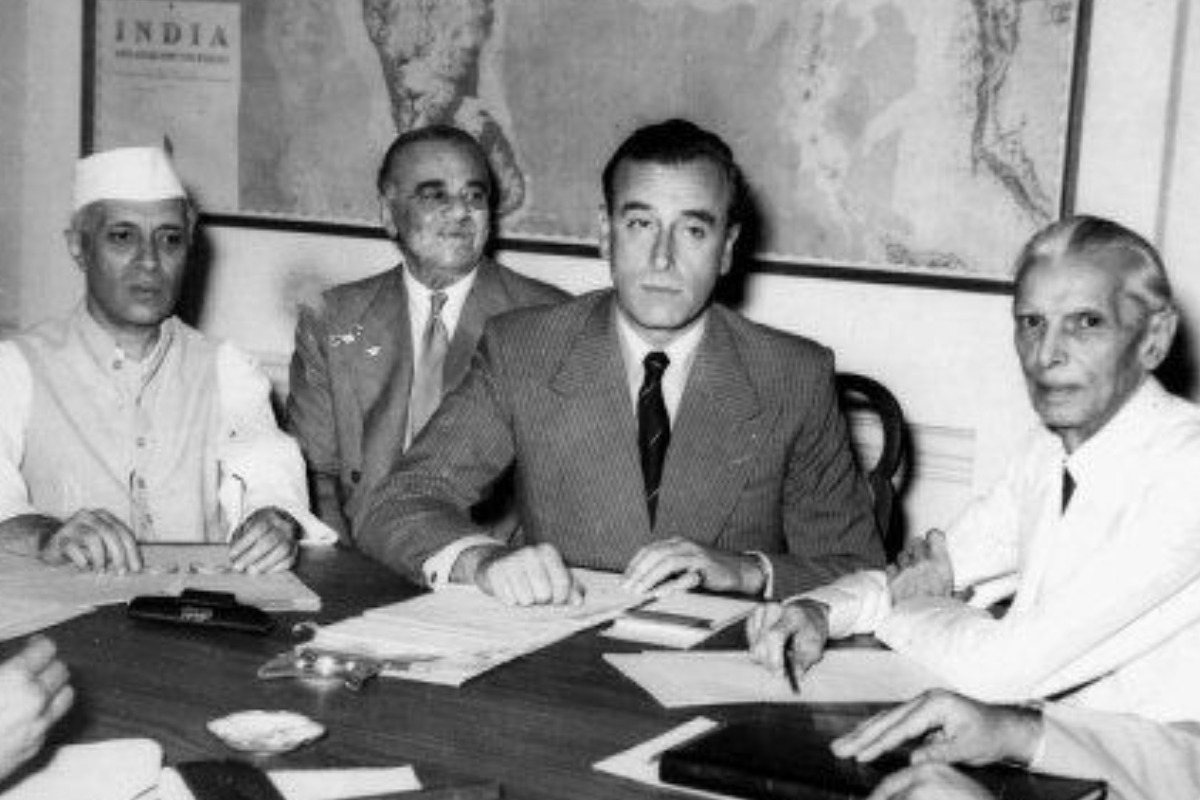Nehru was naive to trust Sheikh Abdullah. Sure. And to trust the British. True. But we must acknowledge that Nehru and Shastri are the only prime ministers to have ordered an invasion of West Pakistan. Nehru’s order was given at a meeting of the cabinet committee on defence in the third week of December 1947.
The decision to take the matter to the UN was taken at the same meeting. In fact, it was a compromise formula: the foreign ministry was to prepare a letter to the UN, while Army Headquarters was to prepare war plans. Nehru’s order was specific: the Army was to invade the districts of Sialkot, Gujrat, and Jhelum.
The foreign ministry did prepare the letter to the UN. The Army did not prepare battle plans. We should remember that both India and Pakistan’s armies were still headed by commanders-in-chief. They, and many others in the top military echelons, were British officers who felt more loyalty to their own country and to Mountbatten than to the country they served.
Both C-in-Cs initially reported to Field Marshall Claude Auchinleck, who remained Supreme Commander of all British forces in both countries until the end of November 1947. His bias is evident in a note he has been cited as writing to his government: “I have no hesitation, whatever, in affirming that the present Indian Cabinet are implacably determined to do all in their power to prevent the establishment of the Dominion of Pakistan on firm basis.” (Nehru-bashers ought to take note.)
One should note here that, just a couple of weeks after Auchinleck left the subcontinent, Nehru had the gumption to sack the Commander-in-chief of the Indian Army, General Sir Robert McGregor Macdonald Lockhart, KCB, CIE, MC. Nehru had belatedly heard that Lockhart had been told by British officers in Pakistan that tribesmen were on their way to Kashmir, and had not told the cabinet.
Nehru appointed an Indian officer to head the Army at the beginning of 1949, while Pakistan kept British officers at the top of their army for another two years.
Nehru’s order to invade Pakistan is on record—as established by the distinguished former foreign service officer, Chandrashekhar Dasgupta, in his excellent book, War & Diplomacy in Kashmir 1947-48. Union ministers should be able to access the original records.
It is worth noting that Nehru gave that order in retaliation for infiltration into J&K. (Shastri’s order in `65 was in retaliation for invasion by the Pakistan Army.) In December 1947, there was only infiltration by tribesmen, volunteers, and army men on leave.
The Pakistan Army formally joined the war in April `48, as Prime Minister Liaquat Ali Khan told the UN Commission for India and Pakistan in July, according to the book by Josef Korbel, the Czech member. The Commission was astounded since they had been led to believe that what was going on in the state was a popular uprising by Muslims against the Maharaja.
Of course, most UN members had initially turned to the British delegation for information and insights.
Britain turned India’s request for eviction into an arbitration issue.
While raking up the past, let us also remember that India took to the UNSC a straight-forward request that, in order to avert war, the UN should make Pakistan withdraw all its personnel from the state, which was now a part of India. Under the British delegation’s influence, the UN turned that simple request into an issue for the Security Council to arbitrate between Pakistan and India.
It was Mountbatten who had pressed for the matter to be taken to the UN ever since the end of October. Nehru had dismissed the idea at first. Jinnah too rejected it when Mountbatten suggested it to him on 2 November.
It was as part of a compromise formula, which was meant to get the British officers in charge of the army to invade Pakistan, that Nehru agreed in that cabinet committee to also ask the UN to get Pakistani personnel out of the state. He wanted that outcome, whether through the UN’s mediation or through war.
He had to resist the British officers in charge at Army Headquarters even with regard to operations within the state. When Nehru heard that they were about to evacuate the besieged town of Poonch, he stormed into Army Headquarters and yelled at them furiously.
The British top brass would have given up Ladakh too. They did not respond when Brigadier LP Sen asked from Srinagar for permission to send a group of volunteer Dogra Regiment soldiers to take over Leh. Sen wrote in Slender was the Thread that, finally, those valiant soldiers marched through waist-high snow in March `48 without orders from Army Headquarters.
It is easy to forget now the great odds against which the operations in, and about, the state were engaged in `47-48. India’s ministers, officers, army, and diplomats not only had to contend against Pakistan, but also against the British officers here, British diplomats at the UN, and the (separate) aspirations for independence of both the Maharaja and Sheikh Abdullah.

















